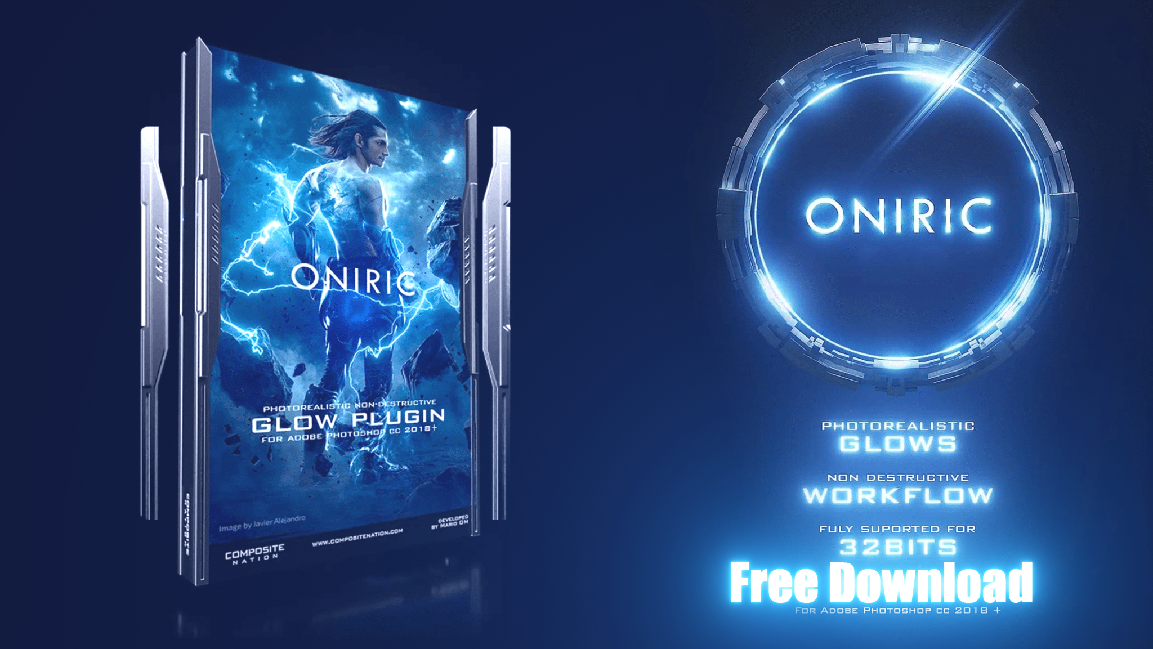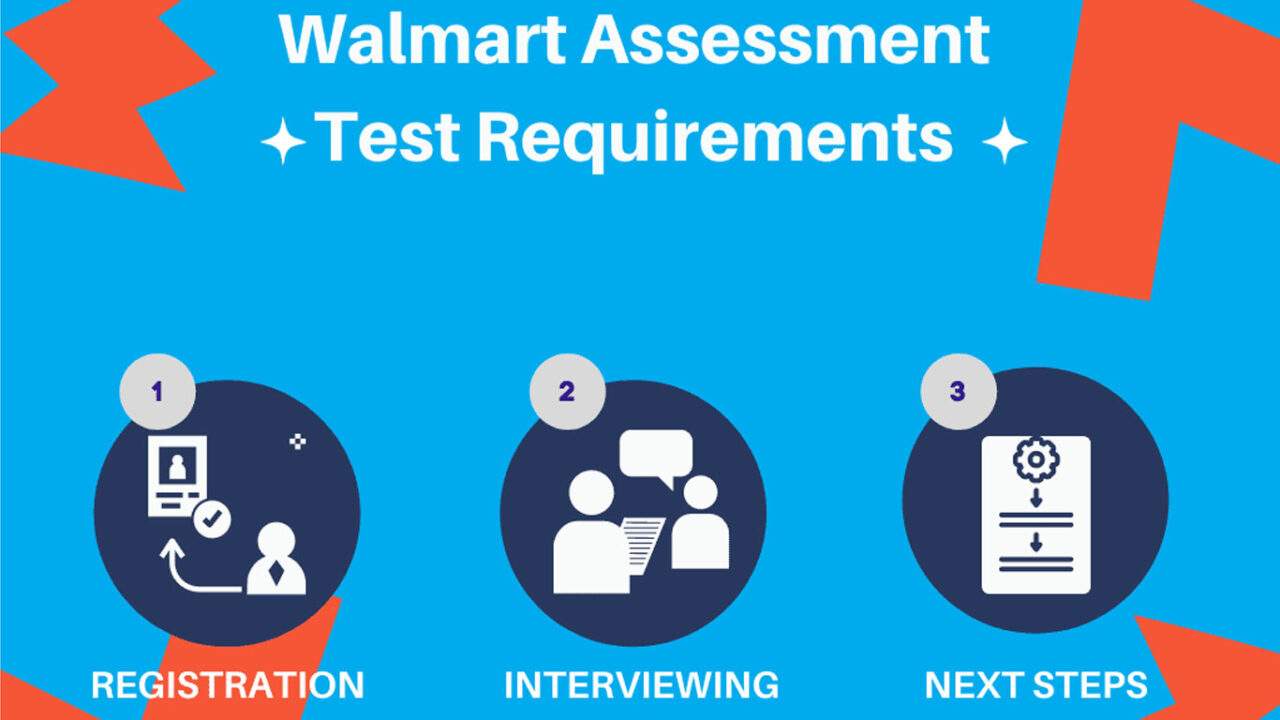Online Reputation Management with Rapid URL Indexer Tool


Imagine this: you’ve spent countless hours building your brand, creating content, and engaging with your audience. But one negative review or an outdated article on Google is holding you back, tarnishing the image you’ve worked so hard to create. Sounds frustrating, right?
In today’s digital world, your online reputation is everything—it’s your brand’s first impression, your credibility, and your chance to shine. The good news? There’s a way to take control of how your brand is seen online, and it starts with a powerful combination of online reputation management and rapid URL indexing.
This blog post is your ultimate guide to understanding online reputation management with rapid URL indexer—a strategy that helps you showcase the positive, suppress the negative, and enhance your online presence faster than ever. You’ll learn why online reputation matters, how rapid URL indexing works, and step-by-step methods to integrate these tools into your digital strategy.
Whether you’re a business owner, marketer, or someone who cares about how they’re perceived online, this post will equip you with the knowledge and tools to stay ahead, regain control, and make your digital presence work for you. Let’s dive in and solve the problem together!
What is Online Reputation Management (ORM)?

Online Reputation Management, or ORM, is all about shaping how your brand is perceived online. Imagine it as your digital report card—a reflection of what people think about you or your business based on what they see on the internet. It involves keeping an eye on reviews, social media mentions, and search engine results to ensure your online image is positive and trustworthy. ORM isn’t just for big companies; it’s equally important for individuals, small businesses, and anyone who wants to maintain a strong and credible online presence.
But why does this matter so much? A positive online reputation builds trust, attracts customers, and opens doors to new opportunities. On the flip side, one bad review or outdated search result can create doubts and push people away. Here’s where online reputation management with rapid URL indexer steps in to save the day. By using tools that speed up the process of getting your content noticed by search engines, you can ensure that the good stuff—like glowing reviews or helpful blog posts—gets seen first. It’s a game-changing way to stay in control of your digital narrative and make the internet work for you.
Rapid URL Indexing Explained
Think of rapid URL indexing as a fast-pass ticket for your content to get noticed by search engines like Google. In simple terms, URL indexing is the process by which search engines find, understand, and list your web pages in their results. Normally, this can take days or even weeks, leaving your fresh content unnoticed in the digital abyss. Rapid URL indexing speeds this up, ensuring your content is visible to your audience almost immediately.
Why does speed matter?
In the world of SEO and online reputation management (ORM), timing is everything. Let’s say you’ve just published a blog post addressing a negative review or showcasing a new product. If search engines take too long to index it, your audience might only see outdated or unfavorable information instead. Rapid URL indexing ensures that the most relevant and positive content takes center stage, improving your online reputation and keeping you ahead of competitors.
How Does Rapid URL Indexing Work?
Rapid URL indexing tools use advanced algorithms and APIs to notify search engines about your new or updated content. These tools effectively “ping” search engines, signaling them to crawl your page faster. Many tools also integrate with platforms like Google Search Console to streamline the process.
Why is this important for ORM?
In online reputation management with rapid URL indexer, these tools are game-changers. By quickly bringing positive content to the top of search results, they help suppress negative mentions or outdated information. This ensures that when someone searches for your brand or name, they’re met with the best version of your digital story. Rapid URL indexers don’t just save time—they’re a powerful ally in controlling your narrative and boosting your reputation.
Step-by-Step Guide: How to Use a Rapid URL Indexer for ORM
Improving your online reputation with a rapid URL indexer is easier than you think. Here’s a detailed, step-by-step guide to help you make the most of this powerful tool and keep your brand’s digital presence shining.
Differences from Traditional Indexing Methods

When it comes to getting your content noticed by search engines, traditional indexing methods and rapid URL indexing differ in speed, efficiency, and control. Traditional indexing relies on search engine crawlers discovering your content naturally. This process can take days, weeks, or even longer, depending on how often your site is visited by these crawlers. While this method works, it’s unpredictable and can leave your fresh, valuable content buried where no one sees it.
Rapid URL indexing flips this script. Instead of waiting for search engines to find your content on their own, tools like IndexNow or other rapid indexers actively alert search engines that your page is ready to be indexed. This direct communication speeds up the process significantly, often making your content visible in search results within hours. It’s like raising your hand and saying, “Hey, look over here!” rather than hoping someone notices you.
Another key difference is control. Traditional indexing methods don’t let you prioritize which pages get indexed first—search engines decide that for you. With rapid URL indexing, you’re in the driver’s seat. You can choose to highlight your most important pages, like a new blog post, a glowing customer review, or updated product information. This is especially helpful in online reputation management, where timing and visibility are crucial for staying ahead of negative mentions.
In short, while traditional methods are slow and passive, rapid URL indexing is fast, proactive, and puts you in control. If you’re serious about improving your online reputation and boosting your content’s visibility, rapid URL indexing is the way forward.
Benefits of Using Rapid URL Indexers for ORM
In the world of online reputation management (ORM), speed and visibility are everything. Rapid URL indexers bring a host of benefits to the table, helping you take control of your brand’s online narrative more effectively than ever. Let’s break down the key advantages they offer.
- Faster Content Visibility
- Suppression of Negative Content
- Improved SEO Performance
- Strategic Control Over Your Online Narrative
- Time and Resource Efficiency
- Real-Time ORM Capabilities
- Enhanced User Trust and Engagement
The benefits of using rapid URL indexers for ORM are clear—they provide speed, control, and efficiency, giving you the tools to actively manage your online reputation. By ensuring that your best content is visible and impactful, you can stay ahead in the digital landscape and maintain a strong, trustworthy presence.
Step-by-Step Guide: How to Use a Rapid URL Indexer for ORM
Step 1: Identify Priority Content for Indexing
Start by determining which content you want search engines to notice quickly. These could include:
- A new blog post or article highlighting your expertise.
- Positive customer reviews or testimonials.
- Updated information about your products, services, or policies.
- Content addressing or countering negative feedback.
Think of this as deciding what you want your audience to see first. Make a list of URLs that reflect the most positive and relevant aspects of your online reputation. Prioritize content that aligns with your goals, whether that’s building trust, promoting a new product, or shifting focus away from negative mentions.
Step 2: Choose a Reliable Rapid URL Indexing Tool
Not all indexing tools are created equal, so it’s important to pick one that suits your needs. Look for tools that are:
- Fast and Effective: Can they index URLs within hours or a day?
- Easy to Use: Does the tool have a simple interface or integration with platforms like Google Search Console?
- Search Engine Compatible: Ensure the tool is compliant with search engine guidelines (e.g., Google, Bing).
- Cost-Effective: Some tools are free, while others come with advanced features for a fee. Compare their ROI.
Popular options include IndexNow, Rank Math’s Instant Indexing Plugin, and premium indexing services that cater specifically to ORM strategies.
Step 3: Submit URLs for Quick Indexing
Once your content is ready and you’ve chosen your tool, it’s time to submit your URLs for indexing. Here’s how:
- Log into your rapid URL indexer tool or integrate it with your website’s backend if supported.
- Paste the URLs you want indexed into the tool.
- Click the “Submit” or “Ping Search Engines” button to alert crawlers.
- Depending on the tool, you may also need to verify ownership of the domain (e.g., via Google Search Console).
This process ensures search engines are notified about your content instantly, bypassing the usual waiting period.
Step 4: Monitor Results and Adjust Strategy
After submitting your URLs, keep track of how your content is performing in search results. Use analytics tools like:
- Google Search Console: Check if the submitted URLs are indexed and how they’re ranking.
- SEO Tools: Monitor the visibility of your positive content compared to any negative mentions.
- Reputation Management Tools: Track changes in public sentiment and visibility of content.
If your results aren’t as expected, adjust your strategy. For example, consider improving your content’s quality, adding targeted keywords, or updating meta descriptions to make it more appealing to search engines.
Step 5: Maintain Consistent ORM Practices
Using a rapid URL indexer isn’t a one-and-done solution. For sustained success, maintain ongoing ORM efforts:
- Regularly Publish Positive Content: Blog posts, reviews, and case studies keep your brand fresh and relevant.
- Respond to Feedback: Engage with customers online, addressing negative feedback and thanking positive reviewers.
- Optimize SEO: Ensure your content is search-engine friendly with proper keywords, tags, and meta descriptions.
- Monitor Your Online Presence: Stay updated on new mentions or reviews about your brand and act proactively.
Consistency is key. By making ORM and rapid URL indexing a part of your regular workflow, you’ll stay ahead of the competition and in control of your brand’s online narrative.
Best Practices for Online Reputation Management with Rapid URL Indexer
If you want to maximize the impact of online reputation management with rapid URL indexer, following best practices is essential. These guidelines will help you maintain a strong, positive online presence while using rapid URL indexing effectively.
1. Monitor Your Online Presence
The first step to managing your reputation is knowing what’s out there. Regularly monitor mentions, reviews, and search engine results to stay informed about how your brand is perceived.
Tools to Help You Stay on Top:
- Google Alerts: Get notifications whenever your brand or keywords are mentioned online.
- Reputation Management Tools: Platforms like Brand24 or Mention provide insights into customer sentiment and trends.
- Social Media Monitoring: Tools like Hootsuite or Sprout Social track mentions and interactions on social media.
By actively monitoring your online presence, you can quickly address negative feedback or capitalize on positive trends.
2. Create Quality Content
Search engines love fresh, relevant, and high-quality content, and so do your audience. Make it a habit to publish content that showcases your strengths, addresses customer concerns, and promotes your brand in a positive light.
Ideas for Quality Content:
- Blog posts explaining your expertise or product features.
- Case studies showcasing successful customer experiences.
- Social proof, such as testimonials and reviews.
- Video content, which is highly engaging and shareable.
The more positive content you produce, the easier it is to push negative or outdated information further down in search results.
3. Use Targeted Keywords
When creating content or using a rapid URL indexer, make sure to include targeted keywords. These help your content rank higher in search results, increasing its visibility.
How to Leverage Keywords Effectively:
- Identify ORM Keywords: Include phrases like “best [your business/product] reviews,” “positive customer feedback,” or “[your location] trusted services.”
- Integrate Naturally: Use keywords in titles, headings, meta descriptions, and throughout the content. Avoid keyword stuffing, as it can hurt your SEO.
- Focus on Long-Tail Keywords: These are specific phrases like “online reputation management with rapid URL indexer,” which are easier to rank for and highly relevant.
Strategic keyword placement ensures your audience—and search engines—can easily find your best content.
4. Optimize for Local SEO
For businesses targeting local customers, local SEO is a game-changer. By optimizing your online presence for specific geographic areas, you can attract nearby customers who are actively looking for services like yours.
Tips to Boost Local SEO:
- Claim and Optimize Google My Business: Ensure your profile is complete, accurate, and updated regularly.
- Encourage Reviews: Ask happy customers to leave positive reviews on Google, Yelp, or industry-specific platforms.
- Use Local Keywords: Incorporate phrases like “[service] in [city/state]” into your content.
- Build Local Backlinks: Partner with local websites, directories, or blogs to generate links to your site.
When combined with rapid URL indexing, local SEO ensures your positive content quickly reaches potential customers in your area.
These best practices, you’ll not only improve your online reputation but also make your online reputation management with rapid URL indexer efforts more effective. Consistency, strategy, and attention to detail are the keys to building and maintaining a strong digital presence.
12 Best Tools and Resources for ORM with Rapid URL Indexer

Effectively managing your online reputation requires a combination of monitoring tools, content creation platforms, and rapid URL indexing services. Here’s a curated list of 12 top tools and resources to enhance your Online Reputation Management (ORM) efforts:
- Google Alerts
- Purpose: Monitors the web for new mentions of your specified keywords, such as your brand name.
- Benefit: Receive real-time notifications to stay informed about online discussions related to your brand.
- BrandYourself
- Purpose: Offers tools to improve personal and business online reputations.
- Benefit: Provides actionable insights and resources to enhance your digital footprint.
- Reputation.com
- Purpose: Manages and improves business reputations across various online platforms.
- Benefit: Offers comprehensive ORM services, including review management and customer feedback analysis.
- Hootsuite
- Purpose: Manages and schedules social media posts across multiple platforms.
- Benefit: Monitors brand mentions and engages with your audience effectively.
- BuzzSumo
- Purpose: Analyzes which content performs best for any topic or competitor.
- Benefit: Helps in creating content strategies that resonate with your audience.
- Google Search Console
- Purpose: Monitors your website’s presence in Google search results.
- Benefit: Identifies indexing issues and submits URLs for indexing to improve visibility.
- Bing Webmaster Tools
- Purpose: Provides insights into your website’s performance on Bing.
- Benefit: Offers tools for URL submission and performance analysis. Wikipedia
- IndexNow
- Purpose: An open-source protocol that notifies search engines of content changes for rapid indexing.
- Benefit: Ensures that new or updated content is quickly indexed by participating search engines.
- Rapid URL Indexer
- Purpose: Speeds up the indexing process of your URLs across multiple search engines.
- Benefit: Ensures timely visibility of your content, aiding in effective ORM.
- Ahrefs
- Purpose: Provides comprehensive SEO tools, including backlink analysis and keyword research.
- Benefit: Helps in understanding your website’s authority and identifying opportunities for improvement.
- Moz
- Purpose: Offers SEO tools and resources for keyword research, site audits, and rank tracking.
- Benefit: Assists in optimizing your website for better search engine performance.
- SEMrush
- Purpose: Provides insights into your competitors’ strategies in display advertising, organic and paid search, and link building.
- Benefit: Helps in refining your marketing strategies and improving your online presence.
Integrating these tools into your ORM strategy, you can monitor your online presence, create engaging content, and ensure that your positive narratives are promptly indexed and visible to your audience.
60 Powerful Google Search Tricks to Instantly Boost Your Results
Common Challenges and How to Overcome Them
While using rapid URL indexers can be highly effective for improving your online reputation, there are some challenges you might face. Here’s a look at the most common issues and practical solutions to overcome them.
Potential Challenges
- Over-Indexing
Rapidly indexing too many URLs at once can signal spammy behavior to search engines, potentially leading to penalties or reduced visibility. - Poor-Quality Content
Indexing content that is irrelevant, outdated, or lacks value can harm your reputation and SEO performance. Search engines prioritize high-quality, user-focused content. - Non-Compliance with Search Engine Guidelines
Using tools or practices that violate search engine policies (e.g., black-hat SEO tactics) can result in penalties, including removal from search results. - Inconsistent ORM Practices
Rapid URL indexing is only one part of ORM. Neglecting other aspects, such as monitoring reviews and addressing customer feedback, can limit its effectiveness.
Solutions
- Focus on High-Quality Content
- Publish content that is relevant, informative, and engaging for your audience.
- Regularly update outdated pages to keep them fresh and valuable.
- Use clear headings, keywords, and visuals to enhance readability.
- Index Strategically
- Prioritize URLs that showcase positive reviews, updated services, or valuable insights.
- Avoid submitting every single URL; focus on content that aligns with your ORM goals.
- Follow Ethical ORM Practices
- Avoid keyword stuffing, duplicate content, or deceptive techniques.
- Ensure your content complies with search engine guidelines for quality and authenticity.
- Monitor and Adjust
- Use tools like Google Search Console or SEO monitoring platforms to track indexed pages and their performance.
- If issues arise (e.g., low rankings or penalties), adjust your strategy promptly by improving content or revising submissions.
- Adopt a Holistic ORM Approach
- Combine rapid URL indexing with other ORM practices like responding to reviews, creating positive PR, and managing social media presence.
- Engage with your audience proactively to build trust and loyalty.
25+ Free & Piad AI Blog Writer Chrome Extensions 2024
By focusing on high-quality, relevant content and adhering to ethical practices, you can overcome these challenges and maximize the effectiveness of online reputation management with rapid URL indexer. The key is to strike a balance between speed and strategy, ensuring that your efforts enhance your reputation without risking penalties.
The Future of ORM and Rapid URL Indexing
The future of online reputation management (ORM) and rapid URL indexing is evolving at an exciting pace, driven by advancements in technology and changing digital behaviors. One of the most significant trends on the horizon is the increasing use of AI-powered tools and automated ORM systems.
These tools can analyze vast amounts of data in real time, identifying patterns and insights that would be impossible for humans to catch quickly. For example, AI can help monitor brand mentions, predict customer sentiment, and even generate optimized content to counteract negative feedback. Automation makes it easier than ever to respond swiftly and strategically, ensuring that your online reputation stays intact with minimal manual effort.
On the other hand, rapid indexing technology is expected to become even more efficient and accessible. As search engines continue to innovate, we can anticipate faster indexing protocols, better integration with AI, and more sophisticated algorithms that prioritize quality over quantity.
Tools like IndexNow and premium indexers are already paving the way for real-time updates, and future iterations might include features like predictive indexing. Imagine search engines automatically indexing content they deem crucial for your audience, based on behavioral data. This would eliminate much of the guesswork, allowing businesses to focus more on content creation and audience engagement.
Ultimately, the combination of AI-driven ORM and next-gen rapid indexing tools will make it easier for individuals and brands to maintain a positive online presence. As technology becomes smarter and faster, managing your reputation online will feel less like a chore and more like a seamless part of your digital strategy.
Conclusion
In today’s fast-paced digital world, managing your online reputation is no longer optional—it’s essential. We’ve explored how online reputation management (ORM) and rapid URL indexing work hand in hand to give you control over how your brand is perceived online.
By quickly pushing positive, high-quality content to the top of search results, rapid URL indexers make sure your audience sees the best of what you have to offer. From monitoring your presence to leveraging tools like IndexNow and Google Search Console, these strategies empower you to stay ahead of the competition and maintain a trustworthy digital image.
Now it’s time to take action. Don’t let outdated information or negative mentions define your brand. Start using a rapid URL indexer today to bring your best content into the spotlight and ensure your reputation stays strong. Whether you’re a small business owner, a marketer, or someone looking to protect their personal brand, the tools and techniques we’ve discussed can help you succeed. Take charge of your online story—your reputation is worth it!
FAQs: Online Reputation Management with Rapid URL Indexer
1. What is Online Reputation Management (ORM)?
ORM refers to the process of monitoring, influencing, and improving how a brand or individual is perceived online. It involves strategies to highlight positive content and address or suppress negative mentions in search results and on social media.
2. What is a Rapid URL Indexer?
A rapid URL indexer is a tool or service designed to speed up the process of getting web pages indexed by search engines. Instead of waiting for search engines to discover new content, these tools directly notify them, ensuring faster visibility.
3. How does rapid URL indexing help with ORM?
Rapid URL indexing ensures that positive content, such as testimonials, blogs, or press releases, appears in search results quickly. This helps suppress outdated or negative content, improving your online reputation effectively and in less time.
4. Are rapid URL indexers safe to use?
Yes, if used responsibly and in compliance with search engine guidelines. Stick to ethical ORM practices and avoid over-indexing or submitting low-quality content, as this may harm your SEO and reputation.
5. Can rapid URL indexers improve my SEO?
Absolutely! By ensuring your new content is indexed quickly, rapid URL indexers can help boost your search engine rankings, increase visibility, and improve your website’s overall SEO performance.
6. Which tools are the best for rapid URL indexing?
Some popular tools include IndexNow, Google Search Console, Rapid URL Indexer, and Bing Webmaster Tools. Each offers unique features to suit various needs and budgets.
7. Is there a risk of over-indexing URLs?
Yes, over-indexing (submitting too many URLs at once) can signal spammy behavior to search engines, potentially leading to penalties. Prioritize important content and avoid submitting unnecessary URLs.
8. How do I know if my URLs are indexed?
You can check if your URLs are indexed using tools like Google Search Console or by performing a simple search with the query:site:yourdomain.com/your-page-url
9. How long does it take for rapid URL indexing to show results?
With most rapid URL indexers, your content can be indexed within hours or a day. However, the exact time may vary depending on the tool and search engine activity.
10. Can I use rapid URL indexers for negative content?
While technically possible, it’s better to focus on highlighting positive content and following ethical ORM practices. Suppressing negative content should be done by promoting high-quality, relevant content instead.
11. Do I need technical knowledge to use rapid URL indexers?
Not necessarily. Many tools, like Google Search Console and IndexNow, are user-friendly and come with guides to help beginners. However, advanced features in premium tools may require some technical expertise.
12. How often should I use a rapid URL indexer?
You should use rapid URL indexers whenever you publish important new content or update existing pages. Regular use ensures your best content is always visible in search results.










